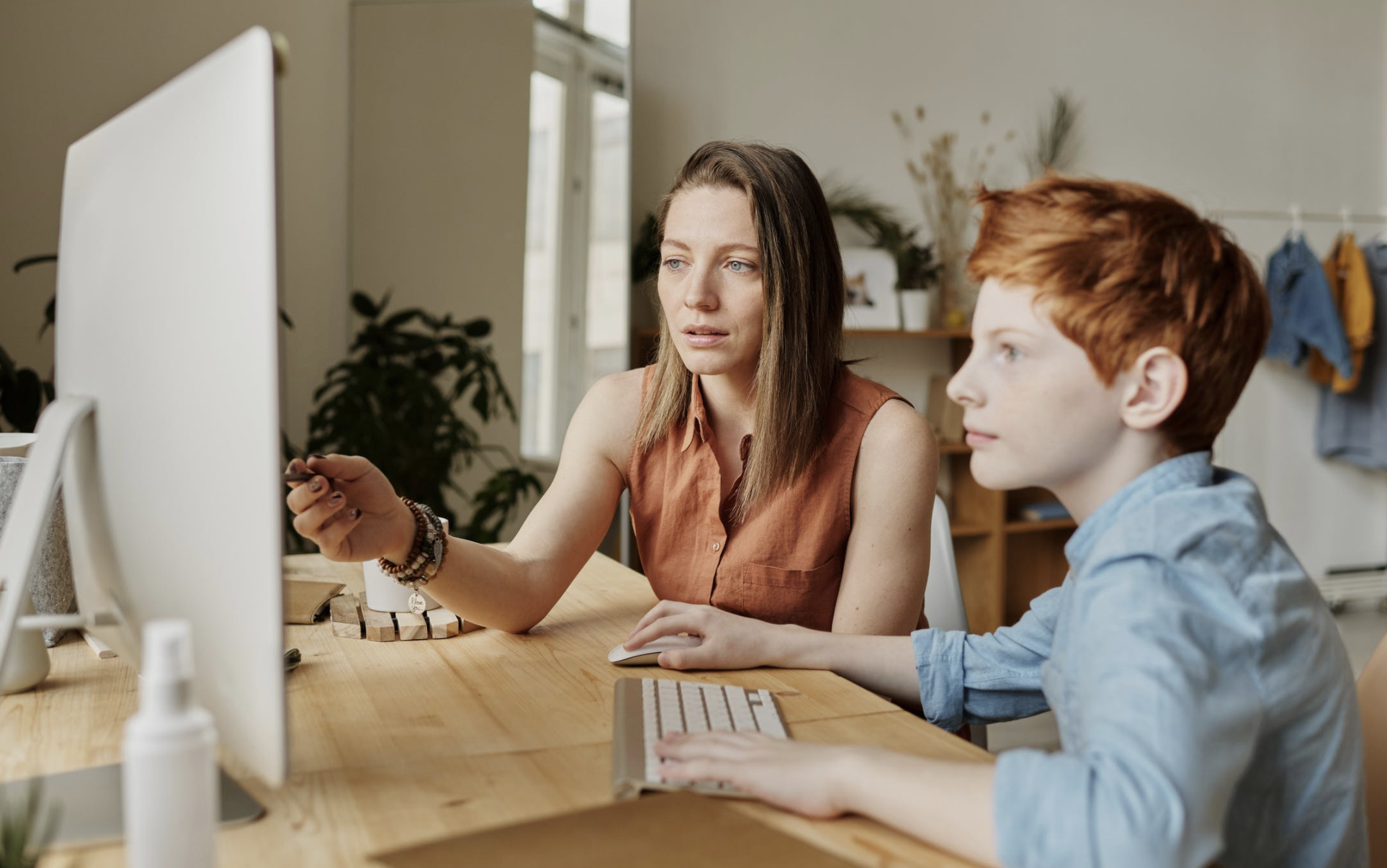Six ways parents can guide children through lockdown and a time of fear and frustration


Not every child looks forward to a new school year. Many drag their feet back to the classroom for various reasons while wishing that home schooling were an option. In March, that wish unexpectedly came true.
When Stage 3 restrictions led to the closure of schools, kids initially revelled in the novelty of what felt like extended school holidays. Then the lockdown stretched longer than they anticipated – or wanted. By the time the school gates reopened in June, most were raring to get back to ‘normal’ life again.
That joy was short-lived when Victoria returned to an even stricter lockdown a few weeks later and children were sent back to remote learning. Throughout July, mental health services reported an influx of calls from young people experiencing heightened levels of stress and anxiety.
Kids Helpline saw an 8% jump in calls from young Victorians in July compared with the previous month. It also reported a 28% year-on-year increase in calls between March and July 2020 compared to the same time last year.
Meanwhile, data from the Department of Health and Human Services (DHHS) reported a 33% rise in children ending up in Victoria emergency rooms with self-harm injuries in the six weeks leading up to 17 August.
According to Better Place Australia’s Child Counsellors, the longer kids are restricted indoors, the more emotional and socially anxious they’re likely to become. One of their biggest frustrations, they say, is with their parents who are struggling to walk the fine line between being a guardian and a teacher.
Without understanding the complexity of juggling work, home and social life from the same space, parents may have a tendency to assume the ‘teachers role’, which may not be helpful for some children.
Our Child Counsellors have observed that their clientele’s levels of anxiety have definitely spiked particularly around preventative hygiene, the duration of the pandemic and rule-breakers.
A Counsellor had an 11-year-old girl ask whether she would be 20 by the time the pandemic is over. “I speak to many kids who are hyper-aware of germs and who don’t want to leave home in case they meet someone who isn’t as ‘clean’ as them. There are also kids who get anxious and upset with adults who break the rules because they relate that to a longer lockdown.”
Our Child Counsellors acknowledge that it’s an intense time for everyone at home, kids can be easily triggered and reactive when they are feeling frustrated. But they add that they also react well to positive attention.
Being around each other so much can create a pressure cooker environment. And sometimes it’s the parent/s who unknowingly creates tension. The child simply responds to it. When the parent/s settle down, the child will too.
Six tips for parents to help their kids through this time:
- Maintain a routine.
Parents with young kids may struggle with this, they should try to persist with a structure as much as they can. Routine is key to creating structure and emotional stability.
- Be guided by the school routine.
Schedule breaks, recess and lunch at the same times as their school does. Also, remember to include mini-breaks between lessons. These are what kids really miss. One child said that when he’s the first to finish his work in school, he gets free time. At home, he’s told to start on the next piece of work. Many parents think they know what remote learning routine should look like but it’s often not what the child is used to.
- Regularly check in with your child.
Kids absorb so much information about the pandemic from various sources. It’s really important to keep checking in with them and break down all that content so it’s easy to understand. This can reduce anxiety and be very reassuring.
- Look out for behavioural changes.
These changes are usually small and can easily be missed. It can be hard to notice these subtle shifts in a hectic day but kids notice when you’re not paying attention and that’s when they may act up more or withdraw.
- Listen if your child asks to be home-schooled permanently.
Remote learning shouldn’t be a safety net to avoid dealing with social anxiety or challenging situations. Talk with your child. Parents can help their child develop resilience through open-ended questions to help them bounce back from adversity. Exploring the reasons together to come up with solutions.
If you feel your child can benefit from child counselling, find out how our child and youth counselling services can help you and your child.
If you are a parent needing support, it can be challenging to juggle different roles and sometimes it can all be overwhelming. A counsellor can help you learn positive ways to manage. Find out more about our counselling and psychology services.
Get Support
Please make an enquiry if you would like to book an appointment for one of our services. Alternatively, you can live chat with us during business hours.




